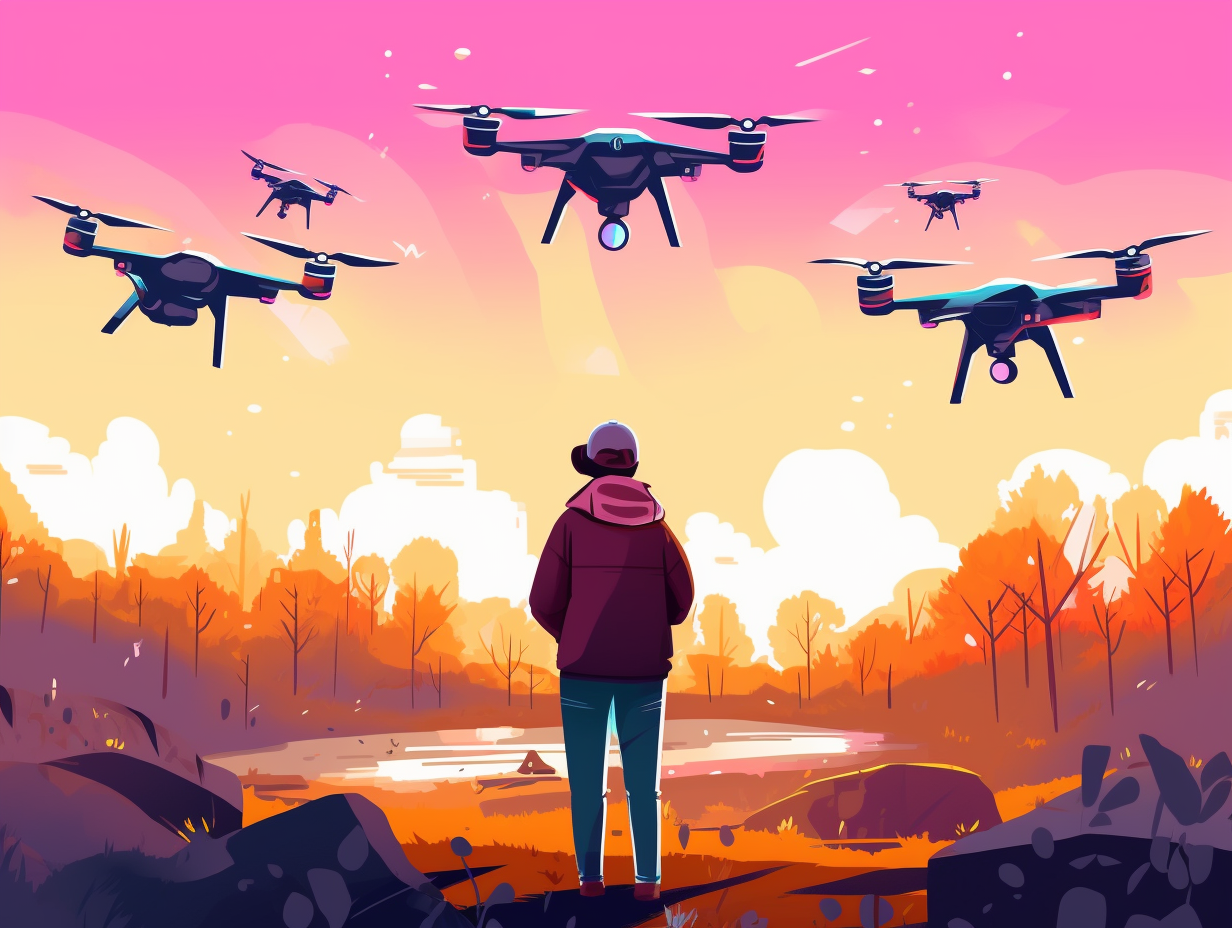Navigate the Unknown: Top 13 Surprising and Entertaining GPS Fun Facts

1. Reagan's GPS Gift
Hold onto your compasses, folks: the GPS revolution was gifted to the civilian world by none other than President Ronald Reagan himself in 1983! That's right, ol' Ronnie opened the satellite curtains for all to enjoy, leading to a stampede of technological breakthroughs like handheld map machines and futuristic auto-navigators. By 1989, the first GPS Block II satellite was shot into space, forever changing the game of "Where on Earth are we?"
Source => aerospace.org
2. Satellite Gossip Squad
In a celestial game of "Where's Waldo" where the satellites are the stripes, your GPS receiver sniffs out their secrets by eavesdropping on their distinct gossip, code-named "pseudo-random noise" – a space detective who needs four chatty suspects, minimum, to crack the case of your precise location: Unbeknownst to many, GPS requires at least four satellites functioning simultaneously to determine its position accurately in three dimensions, and currently, there are 31 operational GPS satellites among the 83 built, with a reserve squad ready for recommissioning or permanent retirement party when the time comes.
Source => en.wikipedia.org

Did you know your smartphone is a secret germ haven, harboring 10 times more bacteria than a toilet seat? 😱 Don't worry, most are harmless – but a quick cleaning won't hurt! Discover more surprising smartphone facts...
=> Fun Facts about Smartphones
3. GPS: Military's Best Friend
Who needs Google Maps when you've got Uncle Sam's all-seeing eye-in-the-sky? That's right, folks, GPS does more than tell your mom where the nearest Starbucks is: The Global Positioning System is indispensable for military operations, such as precision-guided munition strikes, force tracking, search and rescue efforts, and even unmanned aerial vehicle piloting – a collaboration between private businesses, government agencies, and, of course, the good ol' US Department of Defense.
Source => gps.gov
4. GPS vs Mother Nature
Contrary to popular belief, Mother Nature doesn't always have the last laugh when it comes to messing with our tech toys: GPS signals rarely falter due to pesky weather conditions like rain or snow. However, giant snowmen burying your GPS antenna or trees building skyscrapers can obstruct signals and affect accuracy, so you might want to think twice before playing hide and seek with your GPS device!
Source => frotcom.com

5. GPS Satellites: Autonomous Celestial Explorers
Brace yourselves for a stellar, autonomous joyride through space: Block II GPS satellites were designed to cruise gallantly without any earthly guidance for up to 14 days, deftly powered by three-axis stabilization and 710 watts from a pair of solar arrays, all while keeping time with two rubidium and two cesium clocks - and of course, never missing a beat in the cosmic dance of detecting nuclear detonations.
Source => en.wikipedia.org
6. GPS: Broadway Star of Warfare
Before the days of "turn left at the Starbucks, darling", a little thing called GPS made its grand debut on the military stage like a Broadway star: GPS first made headlines during the Persian Gulf War in 1991, even before it was fully developed, and has since revolutionized both military operations and civilian navigation, ultimately reaching full operational capacity in 1995, with next-generation GPS III satellites now promising even greater accuracy and anti-jamming capabilities.
Source => defence.nridigital.com
7. Satellite Swapping Workouts
They may not be as swole as Dwayne "The Rock" Johnson, but these orbital fitness enthusiasts do lift: The GPS satellites weigh around 1.8 tons each and have a lifespan of 10 to 15 years, while regularly undergoing planned maintenance to flex their accurate location and navigation muscles. In the case of an irreparable breakdown, they're swiftly replaced by a backup, ensuring we never lose our way.
Source => terrahunt.com
8. GPS Time Traveler Parties
Time travelers, beware: GPS has its own Y2K-like party every couple of decades! The rollover soirees have happened thrice so far, with the most recent shindig taking place on April 6, 2019: GPS week counters can only count up to 1023 weeks before they reset to 0, creating a new epoch. Save the date for the next rollover bash on November 20, 2038 – Don't miss it, or be doomed to arrive 1,024 weeks late!
Source => en.racelogic.support
9. Satellite Dating Game
Europe is flirting with the idea of creating its own "Match.com" for satellites, searching for the perfect connection in the global navigation dating pool: Fortunately, the United States believes its GPS, along with its wingman WAAS, can more than satisfy user requirements and is urging Europe to make any new system interoperable—ensuring a seamless and transparent Love Island of navigation services.
Source => 1997-2001.state.gov

10. GPS: Where Geometry Rocks
If you thought your high school geometry class would never come in handy, GPS is here to prove you wrong – with a sprinkle of satellite magic and a dash of atmospheric spice: High-end GPS devices can provide real-time positioning accuracy within just a few centimeters or millimeters, and the ongoing GPS modernization program aims to further sharpen this pinpoint precision for civilian and military users alike.
Source => gps.gov
11. Celestial Big Brother
Ever felt like you're being watched by millions of dollars in the sky? Well, you just might be: The Global Positioning System (GPS), originally created by the US military in 1978, is now freely available to every earth dweller, costing a whopping $2 million a day for maintenance and funded by American taxpayers. These 24 satellites in the celestial Big Brother house ensure we never get lost again, all while aiding industries like transportation, aviation, and emergency services. How thoughtful of you, Uncle Sam!
Source => scoutmagazine.ca
12. Global Navigation Showdown
When East meets West and the world's GPS rivalries put Tesla's "Technoking" title to shame: China's Beidou and Russia's GLONASS are not only competitors to the United States' GPS and the European Union's Galileo, but their complementariness could actually create the most powerful navigation system, according to the director-general of Roscosmos.
Source => thediplomat.com
13. Cupid's GPS Arrow
Love is in the air, and so are GPS satellites! Cupid covertly shot his arrow into a global network back in the '80s: The very first GPS satellite, Navstar II-1, was launched on Valentine's Day, February 14, 1989, with the help of The Aerospace Corporation. Now, the system continues to grow and develop with the recent addition of the GPS III satellites, foreverchanging the way we navigate relationships and locations alike.
Source => aerospace.org
Related Fun Facts




















